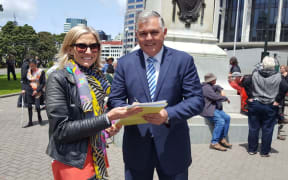A new study shows that the prices New Zealand pays for medicines are among the lowest in the world.

Photo: 123RF
Researchers writing in the Canadian Medical Association Journal in June showed New Zealand had the lowest per-capita spend on medicines used in the community for high blood pressure, pain, cholesterol, diabetes, reflux and stomach ulcers, and depression.
- New Zealand - $C23
- Netherlands - $C49
- Sweden - $C56
- Norway - $C59
- United Kingdom - $C81
- Australia - $C91
- Germany - $C97
- France - $C106
- Canada - $C158
- Switzerland - $C171
Among 10 high-income countries, excluding the United States, New Zealand paid $C23 a person a year for the drugs, compared to $C171 for the highest spending country, Switzerland.
The chief executive of drug buying agency Pharmac, Steffan Crausaz, said the researchers studied four aspects that contribute to the cost: the volume of drugs provided to people in the different countries; the price paid; the mix of drugs used, including expensive and cheap drugs; and new treatments available.
He said many people knew that New Zealand paid relatively low prices, because of its competitive tendering approach to negotiating with drug companies, but the study also tried to make a standardised comparison.
"Essentially what it does is that it shows in New Zealand we are not only paying less for the same medicines. Where there's a choice for doctors to make about choice of treatment, we are being very judicious about reserving the more expensive ones for situations where they're really needed.
"And so together, those two things mean that ... across the set of medicines they looked at, our expenditure in New Zealand is much, much lower than the comparable countries."
Mr Crausaz said Pharmac was surprised to see New Zealand paying the least.
"I think we were surprised. We certainly know from our own work that we do that the prices are relatively low compared to comparator countries, and actually the paper compares some of the rationale behind that."
He added what was really interesting was the mix in the use of drugs within the categories, by the choices being made by doctors.
The mix was "a major driver of what's going on [with prices] and those sorts of choices make a big difference. It makes a big difference because it means we have capacity to fund other medicines and other health services," Mr Crausaz said.
He said Pharmac was using competitive tendering in negotiations for the supply of generic medicines too.
"We're the only country that's undertaking competitive tendering, which is really just a standard procurement process. Most of the other countries are using statutory legal processes to reduce prices and subsidies. But the competitive tendering model seems to deliver relatively very good outcomes."






